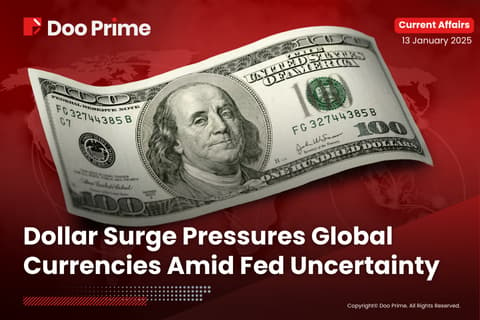WORLDWIDE: HEADLINES
China’s Feb PPI +8.8% y/y, CPI +0.9% y/y
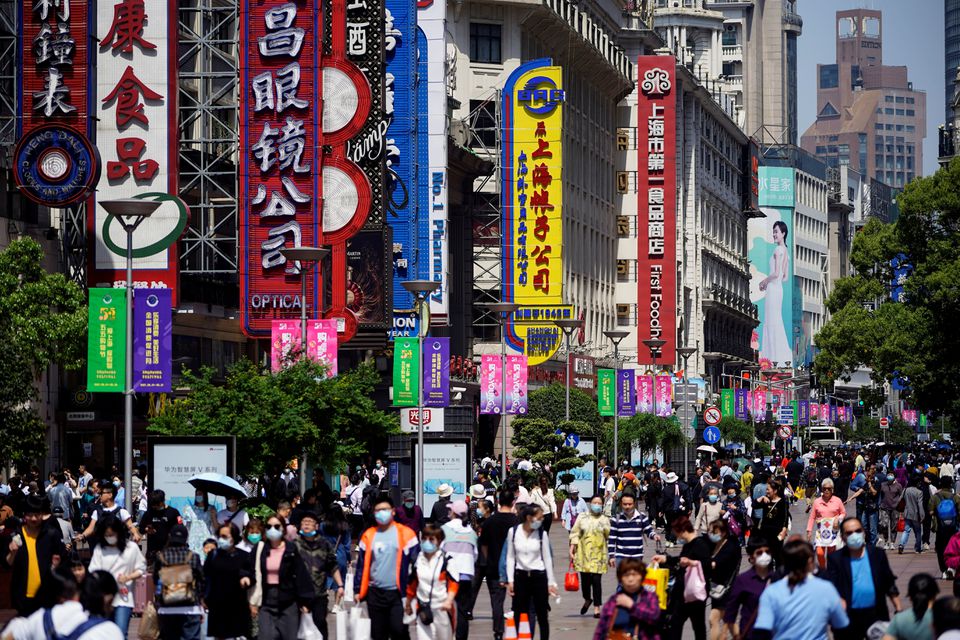
China’s producer prices in February rose at the slowest annual pace since June, official data showed on Wednesday, amid skyrocketing commodity prices, an uncertain global economy and resurgent domestic COVID-19 outbreaks.
The producer price index (PPI) increased 8.8% on year, the National Bureau of Statistics (NBS) said in a statement on Wednesday, easing from 9.1% growth in January.
Analysts in a Reuters poll had expected the PPI to rise 8.7%, moderating slightly from a month earlier.
China’s consumer price index (CPI) inched up 0.9% in February, the data showed, unchanged from the growth in January and market expectations.
China is targeting slower economic growth of around 5.5% in 2022, with the government citing multiple headwinds at home and abroad.
Full coverage: REUTERS
Japan Downgrades Q4 GDP On Service Sector Weakness
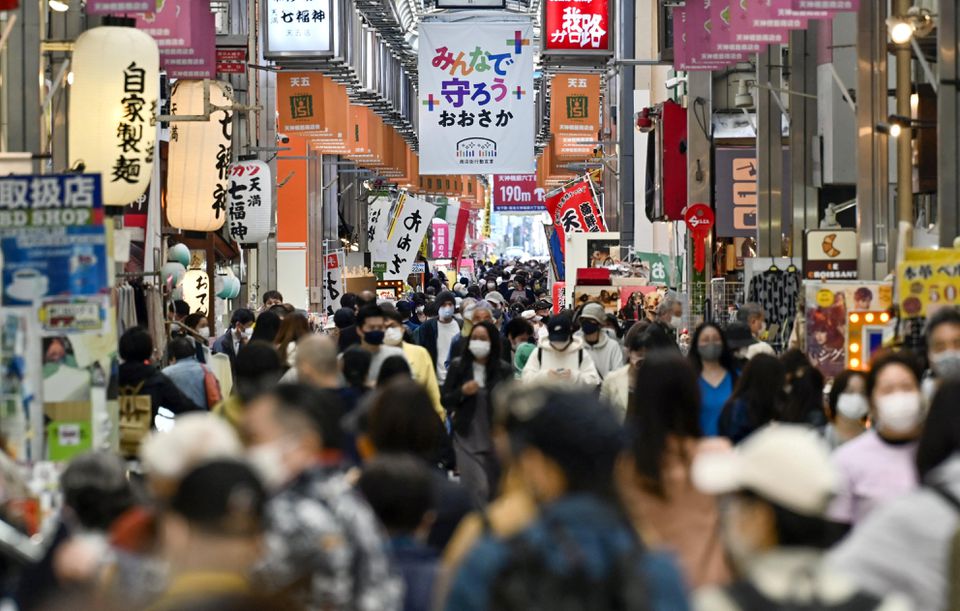
Japan’s economic rebound was softer than initial estimates in the final quarter of 2021, revised data showed on Wednesday, as the pickup seen in consumer and business spending was weaker than first reported.
The downwardly revised growth is bad news for policymakers tasked with keeping the country’s fragile recovery on track as a jump in commodity prices due to the Ukraine crisis and persistent supply disruptions heighten economic uncertainty.
Revised gross domestic product (GDP) data released by the Cabinet Office on Wednesday showed Japan expanded an annualised 4.6% in October-December. That was lower than economists’ median forecast for a 5.6% gain and the preliminary reading of 5.4% released last month.
“This suggests that Japan’s economic recovery from the pandemic is weaker than that of Europe and the United States,” said Takeshi Minami, chief economist at Norinchukin Research Institute.
On a quarter-on-quarter basis, GDP expanded 1.1%, falling short of the median market expectations for a 1.4% gain.
The change was mostly due to the downgrade in private consumption, a government official told a media briefing.
Private consumption, which makes up more than a half of Japan’s GDP, increased 2.4% in October-December from the previous quarter, revised down from an initially-estimated 2.7% gain. Spending in the service sector, in particular, was downgraded to a 3.1% expansion from an initial 3.5% increase.
Recent industry ministry data for December showed spending on services such as restaurants and train rides was weaker than the preliminary estimate based on private-sector figures, the official said.
“Private consumption was likely quite weak in January, due to soft spending on capital goods such as cars and services,” said Minami, adding fresh uncertainty around Ukraine is cooling business investment.
In the fourth quarter, capital expenditure grew 0.3%, lower than economists’ forecasts for a 0.7% gain and a preliminary figure of a 0.4% advance.
Full coverage: REUTERS
WORLDWIDE: FINANCE/BUSINESS
Crude Shoots Higher On U.S. Russian Oil Ban, Asian Shares Stabilise
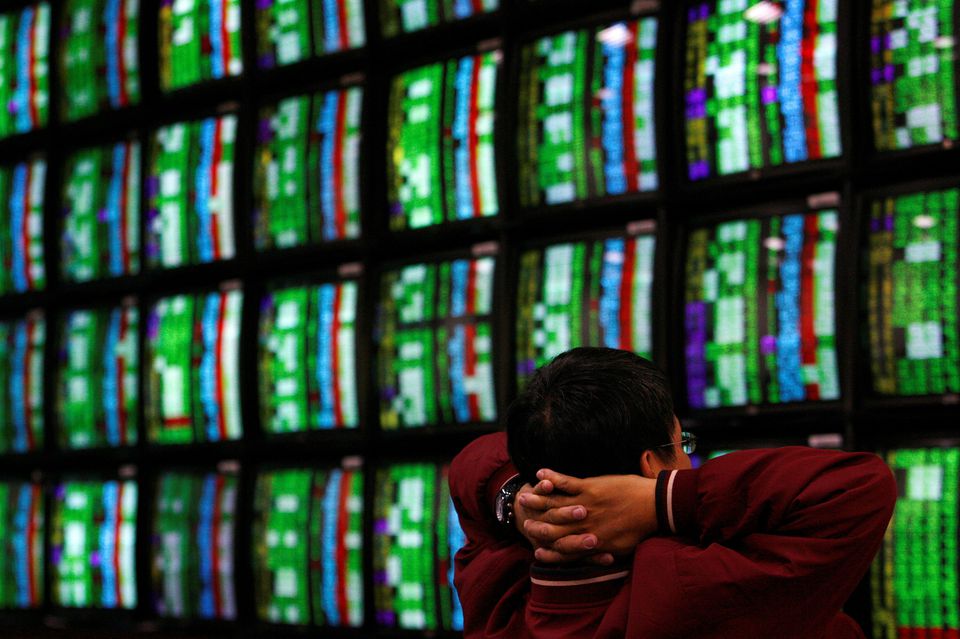
Crude oil prices jumped while Asian stocks regained their footing on Wednesday as investors assessed the impact of a worsening conflict in Ukraine and a new U.S. ban on Russian oil.
The price of a barrel of crude, already on the march higher in January on supply worries and expectations of a strengthening global economic recovery, has rocketed upward since Russia launched its invasion of Ukraine on Feb. 24. Oil is now roughly double its early December low.
Risking even higher U.S. fuel prices, President Joe Biden on Tuesday imposed an immediate ban on Russian oil and other energy imports in retaliation for the invasion of Ukraine, amid strong support from American voters and lawmakers.
The ban caps sweeping U.S. and European sanctions imposed on Moscow for launching the largest war in Europe since World War Two. Russian strikes have targeted Ukrainian cities and killed hundreds of civilians.
Britain also announced it will phase out imports of Russian oil and oil products by the end of 2022.
“The oil shock by nature is an accruing one, not a one-off and the potential for the market to hit $150 before returning to $100 is easier for investors to digest,” said Stephen Innes, managing partner at SPI Asset Management.
“Putting in force sanctions without first developing surrogate supply contingencies risks Brent crude much higher.”
In morning trade in Asia, global benchmark Brent crude was trading at $130.31 per barrel, up 1.82% on the day but still off a peak of $139.13 touched on Monday.
U.S. West Texas Intermediate crude was up 1.41% at $125.45 per barrel.
Russia calls its actions a “special operation,” and it said earlier this week that prices could surge to $300 a barrel and it could close the main gas pipeline to Germany if the West blocked its oil exports.
Full coverage: REUTERS
Oil Extends Rally After U.S. Bans Russian Imports, Prompting Supply Fears
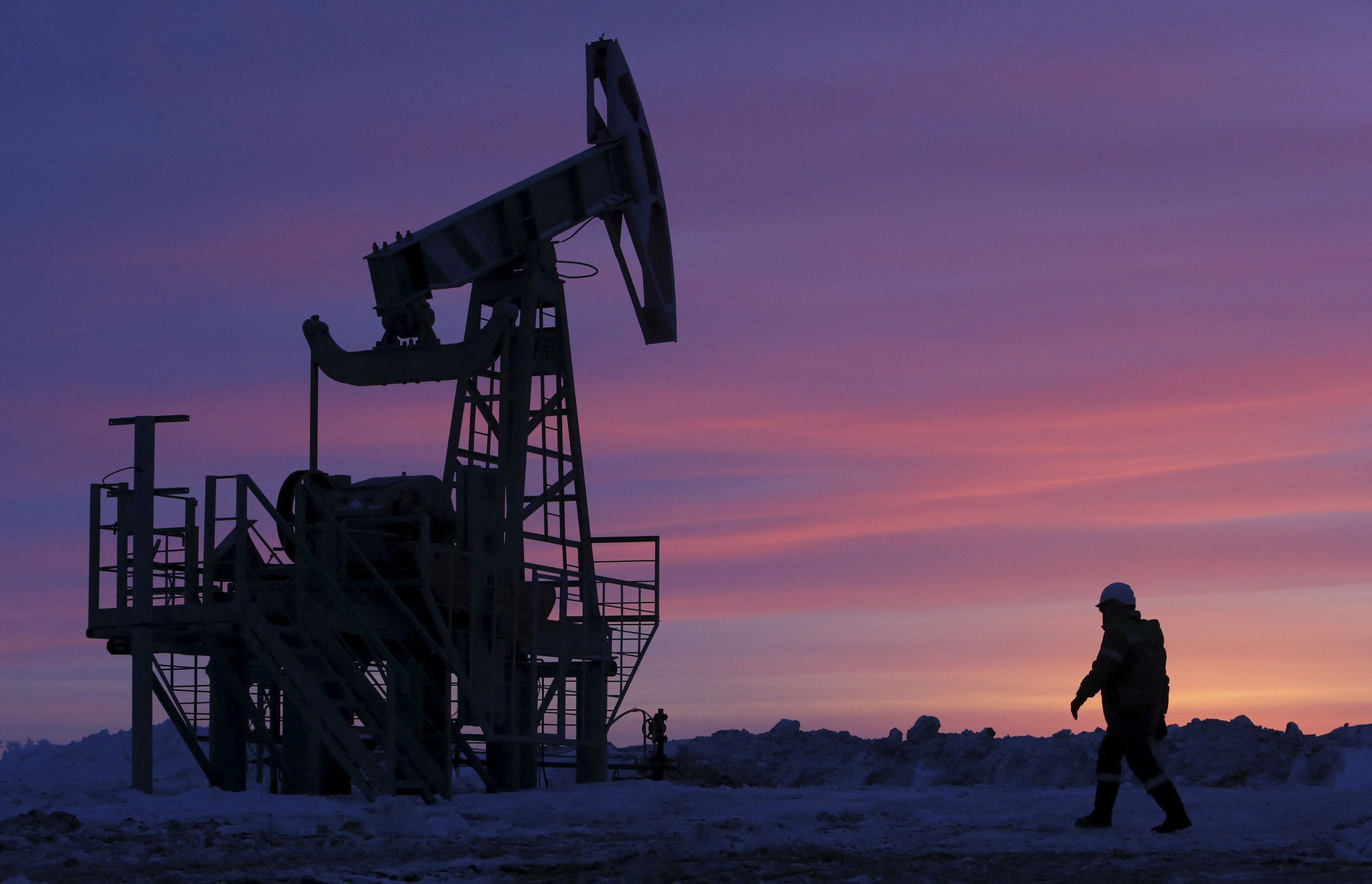
Oil prices rose on Wednesday as the U.S. ban on Russian oil imports and Britain’s plan to phase them out by year end raised concerns of tighter global supply.
Brent crude futures were up $2.17, or 1.7%, at $130.15 a barrel at 0133 GMT, after jumping 3.9% the previous day.
U.S. West Texas Intermediate (WTI) crude futures were up $1.57, or 1.3%, at $125.27 a barrel, after also surging 3.6% on Tuesday.
U.S. President Joe Biden on Tuesday imposed an immediate ban on Russian oil and other energy imports and Britain said it would phase out Russian oil imports through the end of 2022.
Oil prices have surged more than 30% since Russia, the world’s second-largest crude exporter, invaded Ukraine. Fears of further disruptions to oil supply amid escalating sanctions on Moscow has boosted buying, analysts said.
“On top of the U.S. and Britain’s announcement effects, fears of further disruptions of supply from Russia due to intensifying sanctions on Moscow prompted fresh buying,” said Hiroyuki Kikukawa, general manager of research at Nissan Securities.
“But Monday’s highs will likely become a ceiling for the short term as speculative buying is expected to slow down soon and countries in the northern hemisphere are headed to spring when fuel demand drops,” he said.
Oil prices jumped on Monday to their highest levels since July 2008, with Brent hitting $139.13 a barrel and WTI $130.50.
Behind the rally was also expectations that an imminent return of Iranian crude to global markets was unlikely, as talks on Iran’s nuclear programme have slowed between Tehran and world powers.
Analysts at Oslo-based consultancy Rystad Energy said on Tuesday that global oil prices could rise to $200 a barrel if Europe and the United States ban imports of Russian oil.
Full coverage: REUTERS

